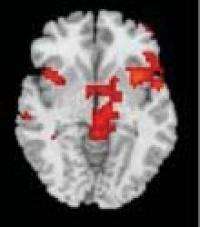Study examines decision-making brain activity in patients with hoarding disorder

Patients with hoarding disorder exhibited abnormal activity in regions of the brain that was stimulus dependent when deciding what to do with objects that did or did not belong to them, according to a report in the August issue of Archives of General Psychiatry.
Hoarding disorder (HD) is defined as the excessive collection of objects and an inability to discard them. It is characterized by marked avoidance of decisions about possessions, according to the study background.
David F. Tolin, Ph.D., of the Institute of Living, Hartford, Conn., and colleagues used functional magnetic resonance imaging (fMRI) to measure neural activity when decisions had to be made about whether to keep or discard possessions.
Their study of 107 adults at a private, not-for-profit hospital compared neural activity among patients with HD (43), patients with obsessive-compulsive disorder (31, OCD) and a group of healthy individuals (33). The objects used in the study were paper items, such as junk mail and newspapers, that either did or did not belong to the participants.
Compared with patients who had OCD and the healthy individuals, researchers found that patients with HD exhibited abnormal activity in the anterior cingulate cortex (ACC) and insula. When deciding about items that did not belong to them, patients with HD showed relatively lower activity in those brain regions. However, when deciding about items that did belong to them, these regions showed "excessive functional magnetic resonance imaging signals" compared with the other two groups, according to study results.
"The present findings of ACC and insula abnormality comport with emerging models of HD that emphasize problems in decision-making processes that contribute to patients' difficulty discarding items," the authors comment.
The group of patients with HD chose to discard significantly fewer participant's possessions (PPs) than did the other two groups, the results indicate.
"The apparent biphasic pattern (i.e., hypofunction to EPs [experimenter's possessions] but hyperfunction to PPs [participant's possessions]) of ACC and insula activity in patients with HD merits further study," the authors conclude.
More information: Arch Gen Psychiatry. 2012;69[8]:832-841.
















